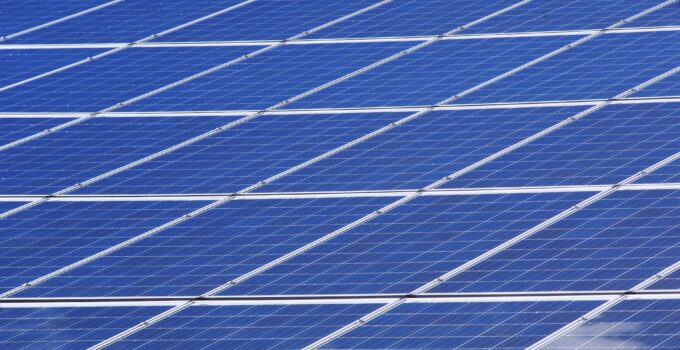Solar energy has gained significant popularity in recent years as a clean and sustainable source of power. With the increasing demand for renewable energy, many homeowners are considering solar generators as an alternative to traditional power sources. But can a solar generator really power a house?
In this article, we will delve into the mechanics of a solar generator, calculate its power output, explore the benefits of using solar energy for household power, discuss how to choose the right solar generator for your home, provide tips for optimizing solar generator efficiency, and compare the cost of solar generators versus traditional power sources.
Understanding the Mechanics of a Solar Generator
A solar generator consists of three main components: solar panels, a charge controller, and a battery. The solar panels collect sunlight and convert it into DC (direct current) electricity. The charge controller regulates the flow of electricity from the solar panels to the battery, preventing overcharging and optimizing battery life.
The battery stores the electricity generated by the solar panels, which can be used to power various appliances and devices in your home.
When sunlight hits the solar panels, it excites the electrons in the silicon cells, creating an electric current. This DC electricity is then converted into AC (alternating current) electricity using an inverter, making it compatible with the electrical appliances in your home. The excess electricity generated by the solar panels can be stored in the battery for later use, ensuring a continuous power supply even during periods of low sunlight.
Calculating the Power Output of a Solar Generator
The power output of a solar generator depends on several factors, including the size and efficiency of the solar panels, the capacity of the battery, and the amount of sunlight available. To calculate the power output, you need to consider the wattage of your appliances and the average daily energy consumption of your household.
Start by making a list of the appliances and devices you want to power using the solar generator. Note down their wattage ratings, which can usually be found on the label or in the user manual. Add up the wattage of all the appliances to determine the total power requirement.
Next, calculate the average daily energy consumption by multiplying the total power requirement by the number of hours each appliance is used per day.
For example, if you have a refrigerator with a wattage rating of 150 watts and it runs for an average of 8 hours per day, the energy consumption would be 150 watts x 8 hours = 1200 watt-hours.
To ensure a reliable power supply, it is recommended to size your solar generator with a capacity that exceeds your average daily energy consumption. This accounts for variations in sunlight intensity and ensures that your solar generator can meet your power needs even during cloudy days or periods of high power usage.
Exploring the Benefits of Using Solar Energy for Household Power
Using solar energy for household power offers numerous benefits. Here are some key advantages:
- Clean and Renewable: Solar energy is a clean and renewable source of power, reducing your carbon footprint and helping to combat climate change.
- Energy Independence: By harnessing the power of the sun, you can reduce your reliance on traditional power sources and potentially lower your electricity bills.
- Low Maintenance: Solar generators require minimal maintenance compared to traditional power sources, saving you time and money in the long run.
- No Noise Pollution: Solar generators operate silently, eliminating the noise pollution associated with generators powered by fossil fuels.
- Long Lifespan: With proper maintenance, solar panels and batteries can last for decades, providing a reliable source of power for years to come.
Overall, using solar energy for household power offers a sustainable and cost-effective solution that benefits both the environment and your wallet.
Choosing the Right Solar Generator for Your Home
When choosing a solar generator for your home, it is important to consider several factors:
- Power Capacity: Determine the power capacity you need based on your average daily energy consumption. Ensure that the solar generator can meet your power requirements.
- Portability: If you plan to use the solar generator for outdoor activities or during emergencies, consider its portability. Look for lightweight and compact options.
- Battery Type: Different solar generators use different types of batteries, such as lead-acid or lithium-ion. Consider the pros and cons of each type before making a decision.
- Expandability: If you anticipate increasing your power needs in the future, choose a solar generator that allows for expandability. This will enable you to add more solar panels or batteries as needed.
- Warranty and Support: Check the warranty and customer support offered by the manufacturer. A reliable warranty and good customer support can give you peace of mind.
By considering these factors, you can choose a solar generator that best suits your specific needs and requirements.
Tips for Optimizing Solar Generator Efficiency
To maximize the efficiency and performance of your solar generator, follow these tips:
- Proper Placement: Install the solar panels in a location that receives maximum sunlight throughout the day.
- Regular Cleaning: Keep the solar panels clean and free from dirt, dust, and debris to ensure optimal sunlight absorption.
- Battery Maintenance: Follow the manufacturer’s guidelines for battery maintenance, including regular inspections and proper charging.
- Energy Conservation: Practice energy conservation by using energy-efficient appliances and turning off unnecessary lights and devices.
- Monitor Power Consumption: Keep track of your power consumption to identify any areas where you can further reduce energy usage.
By implementing these tips, you can enhance the efficiency of your solar generator and make the most of your solar energy investment.
Comparing the Cost of Solar Generator vs Traditional Power Sources
When comparing the cost of a solar generator to traditional power sources, it is essential to consider both the upfront investment and the long-term savings. While the initial cost of a solar generator may be higher than a traditional generator, the long-term savings can outweigh the initial investment.
Solar energy is essentially free once the solar panels and the solar generator are installed. Unlike traditional power sources that require ongoing fuel costs, solar generators rely on sunlight, which is abundant and readily available. This can result in significant savings on electricity bills over time.
Additionally, solar generators have a longer lifespan compared to traditional generators, reducing the need for frequent replacements and maintenance costs. With proper care and maintenance, a solar generator can last for 20 years or more, providing reliable and cost-effective power for your home.
While the cost of solar generators may vary depending on the size, capacity, and brand, the long-term benefits and savings make them a compelling option for homeowners seeking a sustainable and cost-effective power solution.
Frequently Asked Questions about Can a Solar Generator Power a House?
Q: Can a solar generator power my entire house?
A: The answer depends on the size and capacity of the solar generator, as well as your power requirements. A properly sized solar generator can power essential appliances and devices in your home, but it may not be sufficient to power all electrical loads simultaneously.
Q: How much does a solar generator cost?
A: The cost of a solar generator can vary depending on factors such as size, capacity, brand, and additional features. On average, a solar generator can range from a few hundred dollars to several thousand dollars.
Q: Do I need to install solar panels on my roof to use a solar generator?
A: No, solar generators are portable and can be used anywhere with access to sunlight. While rooftop solar panels are a common option for generating solar energy, they are not a requirement for using a solar generator.
Q: Can I use a solar generator during a power outage?
A: Yes, one of the main advantages of a solar generator is its ability to provide power during a power outage. As long as the solar panels receive sunlight and the battery has sufficient charge, you can continue to power essential appliances and devices in your home.
Expert Advice
Consulting with a solar energy expert can provide valuable insights and guidance when considering a solar generator for your home. They can assess your power needs, recommend the right solar generator, and provide expert installation and maintenance services.
Investing in professional advice ensures that you make an informed decision and maximize the benefits of solar energy for your household power needs.




![Troubleshooting Guide: Generac Generator Running But No Power [FIXED] Troubleshooting Guide: Generac Generator Running But No Power [FIXED]](https://offgridever.com/wp-content/uploads/2023/09/image-18-211x150.jpg)

